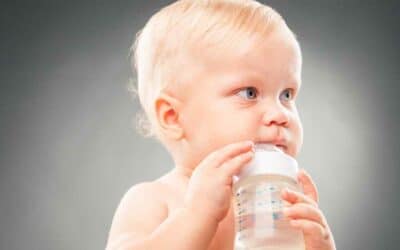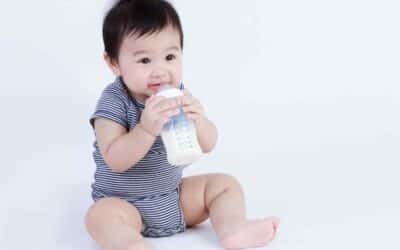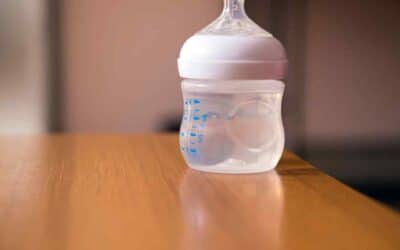The world of infants and newborns is full of dos and don’ts, rights and wrongs especially when it comes to feeding. To new parents, the act of preparing and feeding powdered formula may not just be a mere task, but rather a focal point of countless worries and questions. From figuring out the best water source to understanding the importance behind every step-in preparation, it’s a detour into uncharted territory for many. It’s about this journey that we delve into deeper today, addressing a crucial part of baby formula preparation boiling the water.
In this blog, we will demystify why boiling water is a non-negotiable term in the powdered formula preparation procedure. Not only will we dive into the rationale behind this pivotal step, but we will also provide a thorough guide on how to boil the water correctly, what water source to choose, and the best practices to adopt while preparing and storing the boiled water. Strap in as we unravel information critical for your child’s safety and well-being.
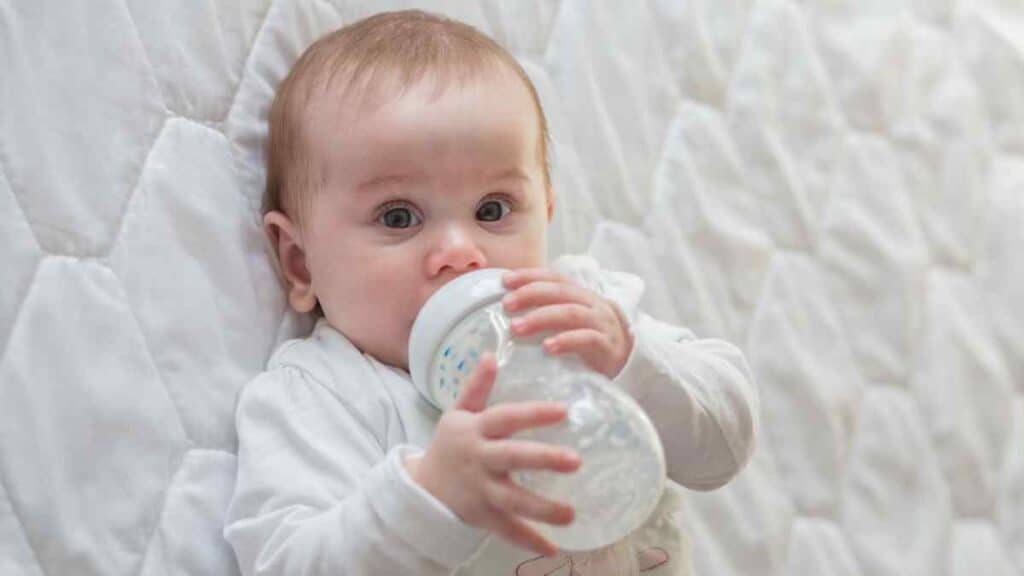
Boiling Water Before Making Powdered Formula
There’s a lot of talk about boiling drinking water for baby formula, which can seem daunting. First, let’s talk about why you should be boiling it before mixing a powdered formula:
Your tap water could be contaminated with bacteria or viruses that can cause illness in babies and young children. If these pathogens get into your ready-to-feed baby formula while being prepared, they will multiply quickly and potentially cause serious health problems for your child!
This is especially crucial for babies born prematurely with a compromised immune system. So boiling helps kill off harmful microorganisms that may have gotten into your tap water supply during its journey through pipes or treatment plants.
Lastly, most tap water is fluoridated water. Too much fluoride can be harmful to infants if consumed in large quantities. Boiling drinking water helps reduce this risk by removing excess fluoride from the water supply.
Boiling Water For Prepared Formula
It’s essential to know how to boil water for baby formula properly. If harmful bacteria are in the water, they will not be destroyed by cooking them at a low temperature and might thrive on the nutrients in the formula. And if you use contaminated water with your baby’s formula, it could cause water-related diseases.
Boiling water is a simple way to ensure your baby’s formula is safe and contamination-free. According to the American Academy of Pediatrics, here’s what you need to know:
1. Run the tap water for 2 minutes to flush the pipes. This will ensure that no live or visible contaminants will find their way into the water. You can also check in with the local health department to see if the tap water in your area is regularly tested and approved as safe drinking water. If you’re in doubt, you can get the water tested to see to it that it is safe for consumption.
2. Boil the water for 1 minute with the lid on the pan. The Centers for Disease Control and Prevention (CDC) recommends heating water to 158 degrees Fahrenheit (70°C). This ensures that all the water gets heated evenly and nothing can contaminate your formula.
3. Let the water cool to body temperature. The American Academy of Pediatrics advises to let your freshly boiled water sit for 30 minutes before pouring it into the baby bottle and adding powder. You don’t want to serve hot water as this may burn the baby’s mouth! Always test the temperature by pouring a few drops of baby formula on the top of your hands.
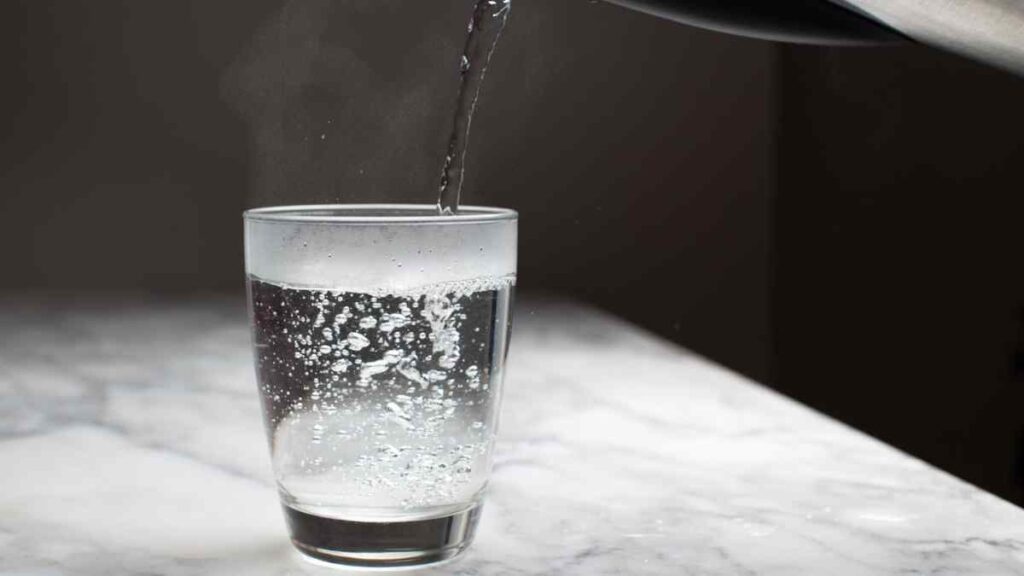
Using and Storing Boiled Water for Formula
Boiling tap water is an indispensable step in ensuring safe water for your baby’s formula. Not only does it eliminate harmful pathogens, but it also lays the foundation for your child’s health and well-being. While using boiled water may seem tricky, there are guidelines to follow for proper use and storage. First, always ensure to use a sterilized container to store the cooled boiled water. Then, cover it securely to prevent contamination and store it at room temperature, away from warm environments that may encourage bacterial growth.
For instances when you don’t plan to use the boiled water immediately, you can store it in the refrigerator, where it will stay fresh for 24 hours. Keeping track of the boiling time is important to maintain the water’s freshness and safety. Planning ahead is perfectly acceptable, so feel free to prepare more than one batch, cautiously storing them in separate sterilized containers. Adhering to these best practices will provide a safe and high-quality foundation for your baby’s formula preparations.
How To Choose The Right Boiling Water For Infant Formula
Selecting the apt water to boil for infant formula goes beyond its accessibility or convenience. As every parent would attest, ensuring optimal nutrition for your baby is paramount, and hence it’s crucial to consider certain factors when selecting the best water for infant formula preparation. The considerations notably include the pH level and the mineral content of the water.
Boiling Water pH Level
The pH level in your water indicates its acidity or alkalinity, playing a significant role in food digestion. More specifically for babies, the ideal pH level suitable for digestion ranges between 6.5 and 8.5. This balanced pH level fosters smoother digestion in infants, making it easier for them to process their food. Conversely, any water with a pH level above 9.0 or below 6.0 will pose a challenge to the baby’s digestive system. It’s harder for infants to digest formula prepared with water at these extremes, as they may hinder nutrient absorption, ultimately affecting the growth and health of your little one. Therefore, always ensure that the pH level of the water used for boiling infant formula stays within the aforementioned range for easier digestion and better nutrient assimilation.
Keep in Check: The Mineral Content
Equally important to consider is the mineral content present in your water, given their significance in the development of babies. Essential minerals such as calcium, magnesium, and potassium are crucial for babies’ growth, promoting stronger bones and effective muscle development. However, it’s a delicate balance to strike as too much of these minerals in your water might overwhelm an infant’s developing digestive system. Having an overabundance of minerals could lead to the baby being unable to digest them completely, which could potentially spark health issues in the long run. Therefore, while essential for growth, it’s vital to ensure that the mineral content doesn’t surpass the baby’s capacity for digestion.
Wrapping up, scrutinizing the water’s pH level and mineral content does not only guarantee an optimal choice for boiling infant formula but also ensures a nutritious addition to the baby’s diet. By emphasizing these factors, you contribute to your infant’s ability to digest food more efficiently and receive an appropriate balance of essential minerals for healthy growth and development.
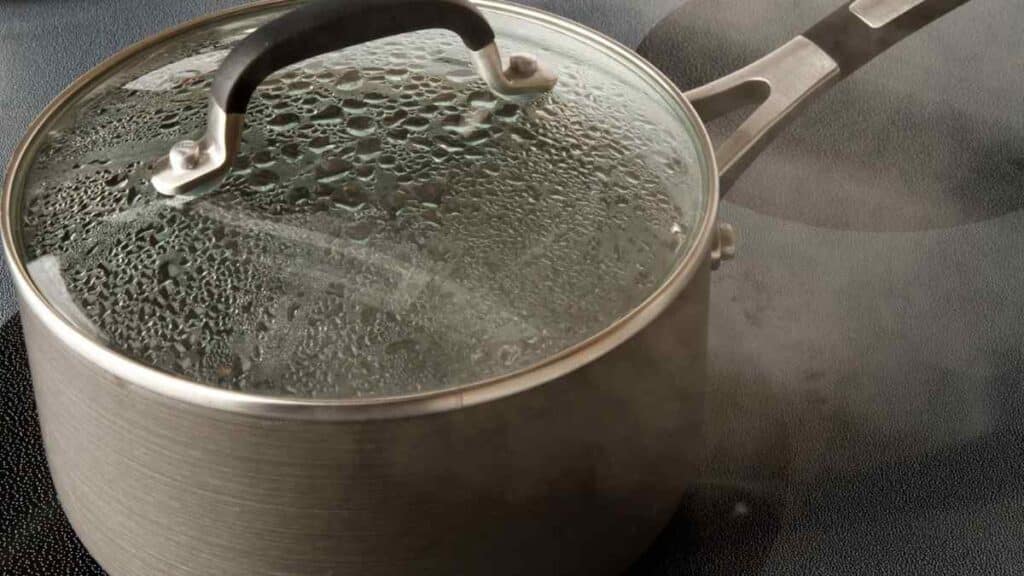
Use Bottle Water Instead of Boiling Water?
If you don’t want to use tap water that you will need to boil, you can try bottled water instead. When choosing the right bottled water to make concentrated formula, it’s essential to pay attention to mineral contents and how much fluoride the water has.
You want bottled water to have low mineral contents and low fluoride water levels. Mineral contents can interfere with how well your baby absorbs nutrients from their formula. On the other hand, regularly mixing liquid-concentrate formula or powdered formula with fluoridated water might increase your child’s risk of developing faint white lines or streaks on the teeth (fluorosis).
You can also opt for purified water or distilled bottled water. These types of water are better for formula preparation since they’re just pure water. Using it decreases the baby’s exposure to unnecessary minerals that their body doesn’t need in large quantities.
Tips To Prepare Baby Formula
The World Health Organization advises breastfeeding as the best option for your baby. However, sometimes it’s not possible, and you need to use ready to feed formula.
The Center for Disease Control and Prevention (CDC) provides detailed instructions on preparing infant formula. Also, you may look for instructions on the formula can labels and from other reliable sources, including state WIC agencies. But here are a few key points to remember when preparing formula:
Get Ready Beforehand
When it comes to feeding your baby, preparation is key. This involves not only preparing the infant formula but also getting everything ready beforehand. To prevent any inconvenience, ensure that you have all the ingredients at your disposal before starting your baby’s feed. These ingredients generally include warm water, the baby formula, a clean feeding bottle, and other supplementary items such as oils or vitamins if required. By being prepared, you eliminate the risk of uncertainty during the feeding process, creating a more controlled and seamless environment for nourishing your baby.
Make Sure Your Hands Are Clean
Hygiene is paramount and even more so when you’re dealing with an infant’s fragile health. Always remember to wash your hands well with soap and warm water prior to preparing baby formula, ensuring an immaculate and germ-free surface. If you have cuts or scrapes on your hands, it’s advisable to use a separate towel for drying post-washing to avoid contaminating the formula with harmful germs.
Measure Everything
Proportion is everything when creating your baby’s formula mixture. To ensure your baby gets the right balance of nutrients, measure every ingredient appropriately and double-check those measurements for accuracy. The correct proportions prevent the risk of over or under-nutrition, meaning you’re neither diluting essential nutrients nor overloading your baby’s system with too much of a single ingredient. Consistency and precision can significantly contribute to your baby’s nourishing feeding experience.

Clean and Sterilize Everything
Cleaning and sterilizing all feeding utensils is an essential step in preparing infant formula. Regardless of the type of formula used, one must ensure all items are thoroughly cleaned and sterilized before beginning. This process helps remove any residual bacteria or microorganisms that may harm your baby’s health, safeguarding their wellbeing and making sure they receive the safest formula mix possible.
Discard Unused Formula
When it comes to any leftover formula, safety protocols strongly recommend its disposal to avoid bacterial contamination. Preferably, a fresh bottle of warm formula should be used within 2 hours of preparation. Consuming it past this window might lead to bacterial growth which can cause illness. As advised by the Centers for Disease Control, any remaining powdered formula should be consumed within 1 hour after the feeding begins. Moreover, it’s crucial to store your formula correctly ideally in a cool, dry place, away from sunlight to maintain its quality.
Conclusion
In conclusion, the practice of boiling water for your baby’s powdered formula cannot be overstated. This process significantly diminishes the risk of bacterial and viral contamination that could lead to serious health complications for your infant. Additionally, boiling enables you to manage the fluoride levels in your baby’s formula, ensuring they are receiving only what is vital for their growth and development, and not an excess that might prove harmful. The ideal pH level of water for digesting formula ranges between 6.5 and 8.5, and the mineral content must never surpass your baby’s capacity for digestion. These factors are crucial in selecting the best water for boiling infant formula.
More so, when preparing baby formula, prioritizing cleanliness, measuring ingredients accurately, and thorough sterilization of all feeding utensils are essential. It is also important to discard any leftover formula to avoid bacterial contamination. By adhering to these guidelines and maintaining the necessary precautions, you can significantly contribute to your baby’s wellbeing and nourishment. No doubt, the primary duty of every parent is to ensure the health and safety of their little one. Remember that the effort you put into these preparatory processes is a direct investment in your baby’s present and future wellbeing.
Did this article help you? We’d love to hear from you! Have a question? Let us know in the comments.

